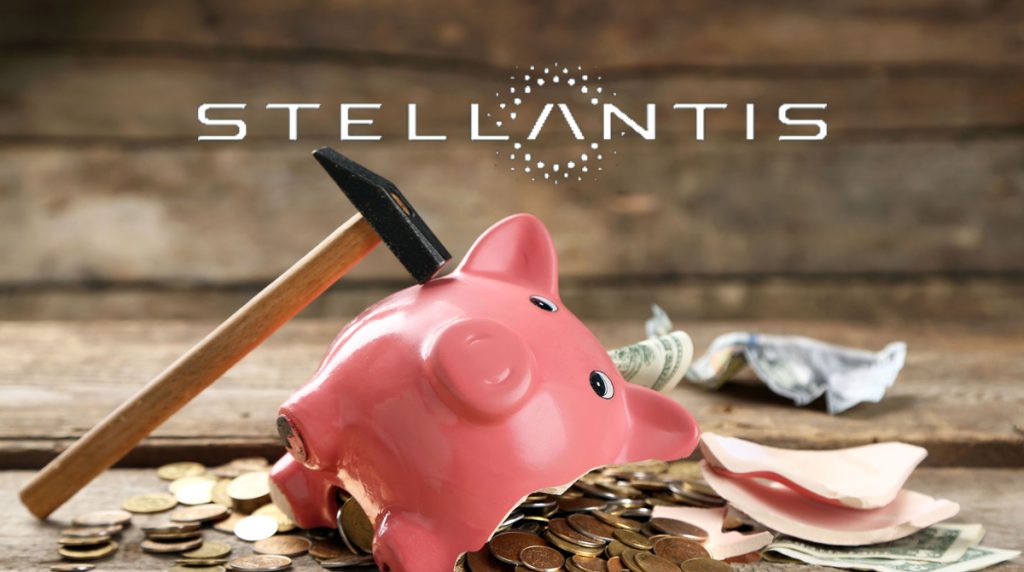The Trudeau government moved down a dangerous path with Volkswagen in St. Thomas, Ontario, that’s set the stage for the current crisis with Stellantis in Windsor.
These are both multi-national corporations whose goal is to generate the biggest possible profits, by paying the lowest possible wages and securing the biggest possible concessions from federal, provincial and municipal governments. Both companies are squeezing Canadian governments to match the high level of government subsidies promised by the Biden administration’s Inflation Reduction Act to keep construction of their new EV battery plants in Canada.
Canada acquiesced to Volkswagen and the public is on the hook to pay $13.5 billion in foregone taxes and other benefits for this German company to set up shop in St. Thomas, Ontario; providing 3,000 direct jobs and 30,000 indirect jobs to workers in the area. Both federal and Ontario governments contributed with tax and other concessions, securing an agreement to build a plant and hire workers in Canada to produce EV batteries that will make this company even richer than it is today.
Not surprisingly, Stellantis (formerly Chrysler) is demanding equivalent concessions to build its new plant in Windsor, or it too will move its operations across the Detroit River to Michigan or Indiana where Biden’s Inflation Reduction Act provides massive concessions to corporations building and operating in the US. Stellantis says it will walk away from the deal made with the Canadian government before Biden’s IRA came into effect, and has stopped construction on its Windsor plant. Almost 2,500 direct jobs and thousands more indirect jobs are in the balance, and in Windsor where auto is the one and only industry in town, the pressure is on for Canadian governments to ante up. The biggest pressure comes from the City of Windsor and from UNIFOR, the union representing autoworkers in the city.
What we’re really seeing is a replay of the 2007-08 crisis, where North American governments and auto companies united against their employees and the public to guarantee a massive public bailout and future corporate profits at public expense. Chrysler was bankrupted and bailed out with public money, then made billions in profits as Stellantis, and is now laying off 3,500 hourly employed workers in Canada, and thousands more in the US as a result of their shift to produce electric cars. The renewed NAFTA agreement has put the new EV battery jobs
and investments up for sale on the North American market, and the highest bidder will get them, never mind Canada’s national interests, or the interests and well-being of thousands of autoworkers in Canada.
This is a recipe for disaster, for parts and assembly workers, and for the auto industry in Canada. What we will get is lower wages, poorer conditions, and a price on every job in Canada leading to wage levelling and/or more plant closures. That’s because North American auto wages are highest in Canada, and that is what the auto industry aims to cut in order to further increase its profits, in the shift to electric vehicles.
But it doesn’t have to be this way. And the Canadian government and the autoworkers’ unions can and should demand a different road forward today for their long term interests. Instead of making concessions to US and foreign owned auto companies, the Canadian government should build a publicly owned automobile and transportation industry that would build a small, affordable, and environmentally sustainable electric car; and that would also retool existing plants and operations to produce mass rapid public transit, and inter-urban rail and bus transit across Canada. This would guarantee a future for a publicly owned Canadian transportation industry, and for good permanent unionized jobs, with good wages and working conditions for generations to come.
Canada must also withdraw from the renewed NAFTA agreement which continues to threaten the Canadian economy, Canadian jobs, and Canadian sovereignty and independence. NAFTA has maintained Canada as a source of raw materials, and a market for value-added products where the value is added offshore by cheap labour in non-union workplaces. This must stop. Canada’s trade agreements must be mutually beneficial and multi-national.
The auto industry in Canada has been foreign owned from its inception, starting with the arrival of the US Big Three, and now expanded to include Japanese, Korean, German, and other companies; all of which are foreign owned. Though the auto industry in Canada is a mainstay of the Canadian economy, it is entirely at the mercy of its foreign owners. Instead of building a Canadian transportation industry, Canadian governments settled for the Auto Pact and promised jobs. When the Auto Pact was struck down by the WTO in 2001, the bottom fell out under unionized auto jobs in Canada. Plants closed, jobs disappeared, and wages fell relative to productivity. In 2009, Chrysler was bankrupted, then bailed out and reborn as the fabulously profitable Stellantis – now extorting the Canadian public.
Now’s the time for a permanent fix: a publicly owned and controlled transportation industry that includes an environmentally sustainable and affordable Canadian car, municipal mass rapid transit, and inter-urban mass rapid transit including buses and trains.
Central Executive Committee Communist Party of Canada
